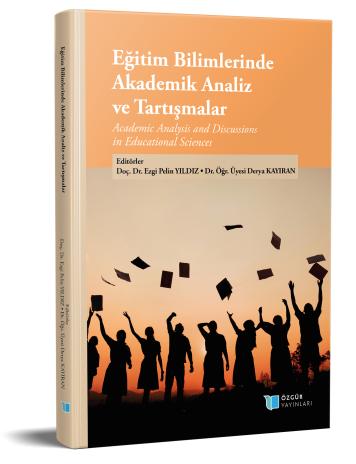
Eğitim Bilimlerinde Akademik Analiz ve Tartışmalar
İndir
Özet
Eğitim bilimleri, aynı zamanda eğitim bilimleri, eğitim kuramı ve geleneksel olarak pedagoji olarak da bilinir ve eğitim politikası ile uygulamasını tanımlamaya, anlamaya ve çözümlemeye çalışır. Eğitim bilimleri pedagoji, andragoji, müfredat, öğrenme ve eğitim politikası, organizasyon ve liderlik gibi birçok konuyu içerir. Eğitim düşüncesi, tarih, felsefe, sosyoloji ve psikoloji gibi birçok disiplin tarafından bilgilendirilir.
Eğitim bilimleri ile ilgili fakülteler, bölümler, derece programları ve dereceler genellikle eğitim fakültesi olarak adlandırılır. Aynı şekilde, eğitim bilimleri okumak olarak çok nadiren ifade edilen ve çoğu Avrupa ülkesinde geleneksel olarak pedagoji eğitimi (İngilizce) olarak adlandırılan eğitim okuduğunu söylemek hala yaygındır. Benzer şekilde, eğitim teorisyenleri de ülkeye bağlı olarak pedagog olarak bilinebilir.
Örneğin, kültürel bir eğitim teorisi, eğitimin hapishaneler, haneler ve dini kurumlar ile okullar dahil olmak üzere kültürün bütünlüğü aracılığıyla nasıl gerçekleştiğini ele alır. Diğer yandan, eğitim psikolojisinden gelen davranışçı eğitim teorisi ve eğitim sosyolojisinden gelen işlevselci eğitim teorisidir.
Avrupa'da eğitimi anlamaya yönelik bilinen en eski girişimler klasik Yunan filozofları ve sofistleri tarafından yapılmıştır, ancak Arap, Hintli ve Çinli bilim adamları arasında çağdaş (hatta daha önceki) tartışmalara dair kanıtlar da vardır. Bu kitapta eğitim bilimleri incelenmiştir.

